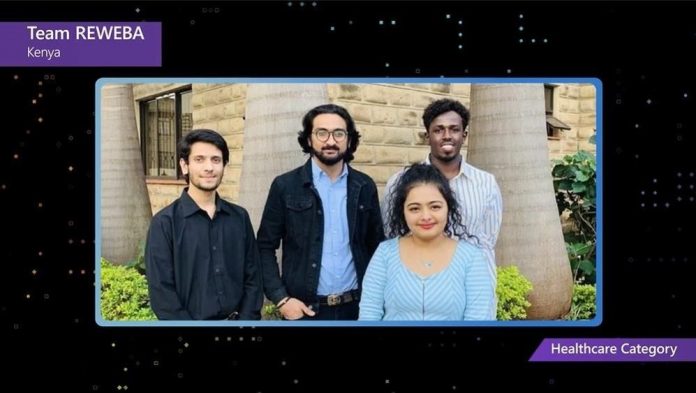The project, Remote Well Baby (REWEBA), is an early warning system that digitally monitors a baby’s growth and health parameters and sends them to doctors for timely intervention. It combines Machine Learning, IoT, Analytics, and more to provide innovative functionalities for infant screening, mimicking the process of post-natal screening in a hospital.
Khushi Gupta, one of the team members, noted that the development of the solution was driven by the need to enable equal access to healthcare and preventing instances of infant mortality.
“Sub-Saharan Africa has the highest number of infant mortalities, highlighting the gap in healthcare services. REWEBA is the only remote healthcare solution that provides regular growth monitoring for infants from the comfort of the home, while also giving direct access to doctors for immediate intervention,” she said.
The Imagine Cup challenges students to come up with something that matters to them, and along the way, have a chance to develop their skills and have access to the tools, resources, learning materials, and mentors to help competitors bring theirs projects to life. This was reiterated by team member Jeet Gohil, who noted that they learned about various technologies and their use during the development of their project.
“There are a lot of technologies that we came to discover (through building our project), for example Azure DevOps, IoT, and Functions. We learned a lot about how to build IoT systems,” he said.
The team hopes to enhance and scale the project to include additional infant screening factors and a postnatal screening device for mothers, and over time. They hope to launch a start-up to support and improve healthcare access across the country.
The team also hopes to expand the project throughout the African continent, and India, which they note are some of the regions with some of the highest infant mortality rates.

 General News2 days ago
General News2 days ago
 Business News1 week ago
Business News1 week ago
 Entertainment6 days ago
Entertainment6 days ago
 General News2 days ago
General News2 days ago






